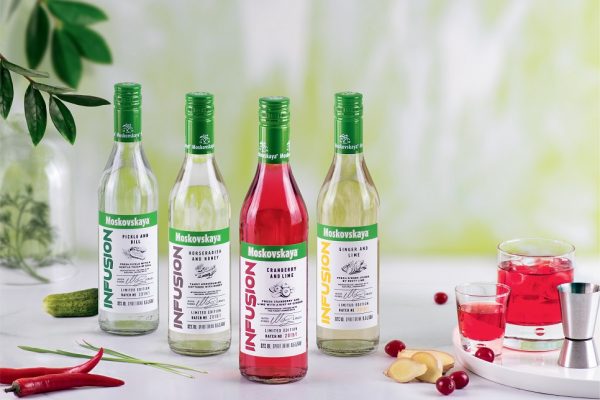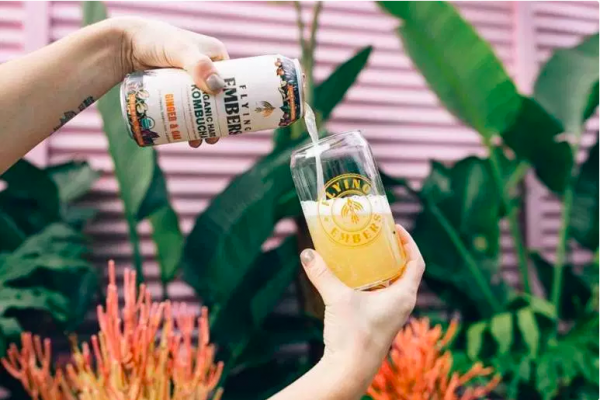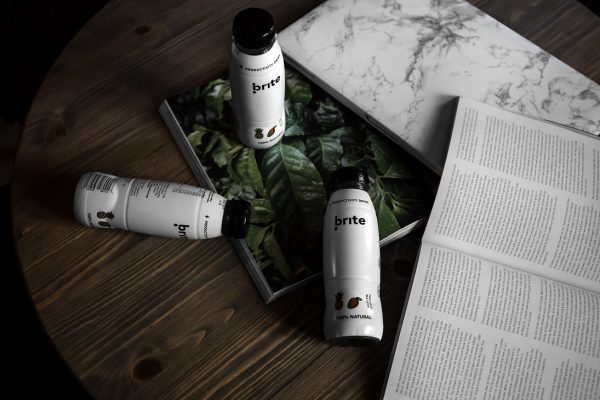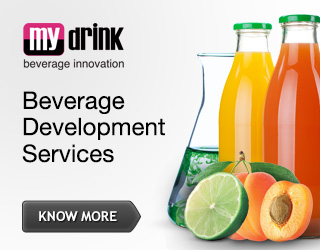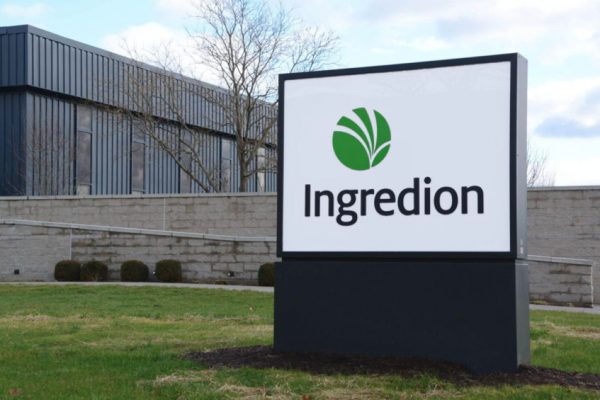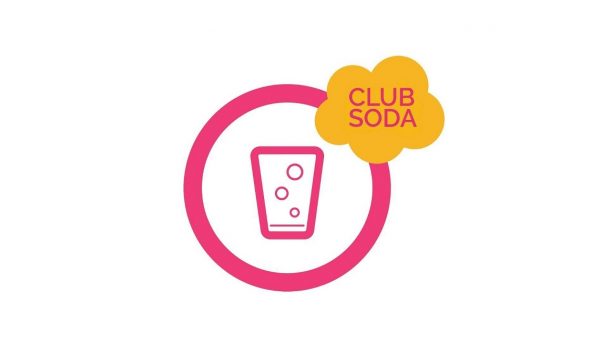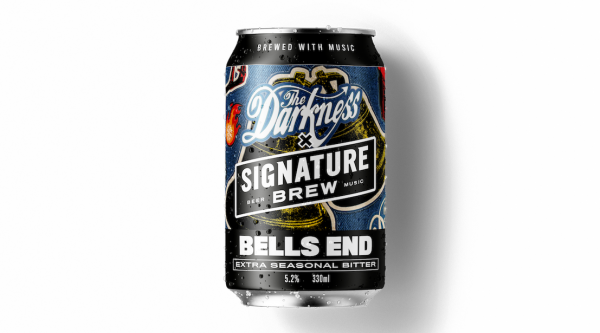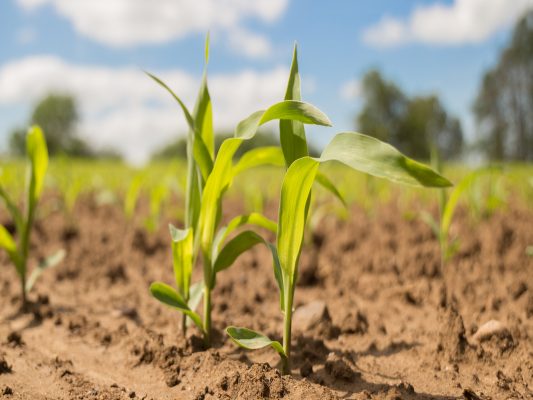Beverage Startups
The Story Behind Bluewater Distillery
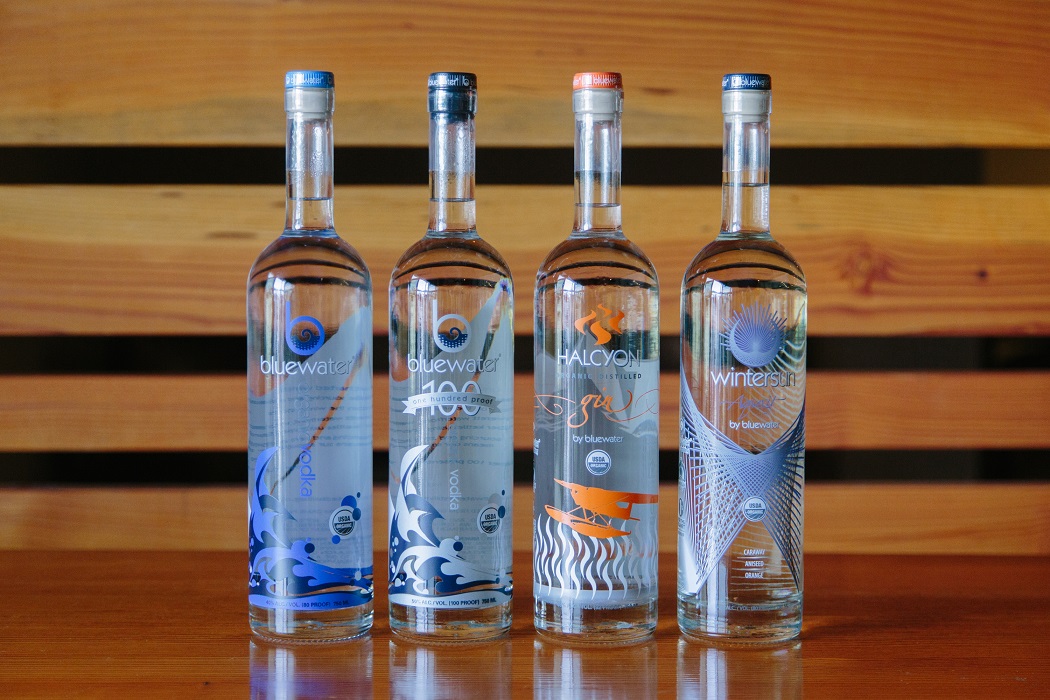 Starting your own beverage company can be really challenging. Today, I have a pleasure of talking with John Lundin, founder and head distillery at Bluewater Distilling.
Starting your own beverage company can be really challenging. Today, I have a pleasure of talking with John Lundin, founder and head distillery at Bluewater Distilling.
1. Let’s start right from the beginning. Whose idea was it to open Bluewater Distilling?
The idea first surfaced in a ski lift conversation in the Cascades in 2008, when a friend and I were exploring creative business ideas. I was living on a sailboat in Seattle at the time, and later impulsively tested the distilling concept while anchored out. I had opened a bottle of wine that tasted off, and instead of dumping it out I poured it into a soup pot on the galley stove and managed to capture the alcohol by placing ice on the upside down lid as a condensation surface. It was simple and crude, and the rough tasting brandy taught me that your finished spirit is only as good as your starting ingredients.
The business was really born at that moment as the drive to explore & create became an obsession. After that first experiment, I fabricated a larger still and began developing gin recipes and exploring other aromatic distillations. At the same time, I was creating the Bluewater brand – focusing on the business principles, strategy and structure. After about a year and a half, we had our first production run and Bluewater was finally on the market.
2. Doing something for the first time is tough. Did any of you have any experience in beverage business before starting Bluewater?
None, other than being a hugely curious consumer of the industry. I approached the business with my best talents of technical expertise, creative exploration and entrepreneurial drive. I had so much to learn about the workings of the spirits market, and devoted tremendous time to this task. I started the business in the 2008 recession, and everything was so difficult, obstacles everywhere. The challenges made Bluewater tougher, leaner and more efficient. We wrote the rules as we went since the small batch spirits realm was in its infancy.
3. There is a variety of four different products produced by your company. Can you tell us more about each?
Bluewater operates in the world of complex aromatics, capturing flavors through infusions, macerations and distillations. Everything we source is 100% organic and all our products are slowly distilled in our hand-hammered open-flame copper kettles. It’s a commitment to merge sustainable sourcing with artisanal methods.
- Bluewater 80 Proof Vodka is the foundation for our lineup, slowly distilled in our copper kettles to remove any lingering impurities. This vodka sees minimal filtration as we look to protect the positive essence of our grain source. We never use any additives, so what you taste is an elemental crisp purity.
- Bluewater 100 Proof Vodka is the only organic high-proof vodka on the market, and a perfect bartender’s friend for tinctures & infusions. The spirit is 100% copper kettle distilled from 100% organic grains, bottled at 100 Proof with zero additives.
- Halcyon Organic Distilled Gin presents a classic London Dry structure with an inviting citrus-bright profile. Halcyon has performed very well among critics and the Gin shines in any classic cocktail while having a welcoming range for creative mixology. I’m forever impressed by the flavor of Halcyon, it’s a timeless aromatic capture and a true example of small-batch superiority over industrial methods.
- Wintersun Aquavit is our latest addition, inspired by my Swedish heritage. The spirit is balanced & delicate, rooted in the classic core profile yet so approachable and drinkable. We worked hard to develop the recipe to perform swimmingly well in mixology, and our own bartenders are taking Aquavit cocktails to the next level.
- Bluewater’s Limited Series features 100% Organic seasonal fruit infusions & liqueurs crafted in very small batches. We make Limoncello using lemons we squeeze for our cocktail bar, and our Elderflower liqueur is balanced with Cardamom spice. We’re always working on new Limited spirits and have seen great responses to our Vine-ripened Raspberry and Blood Orange expressions.
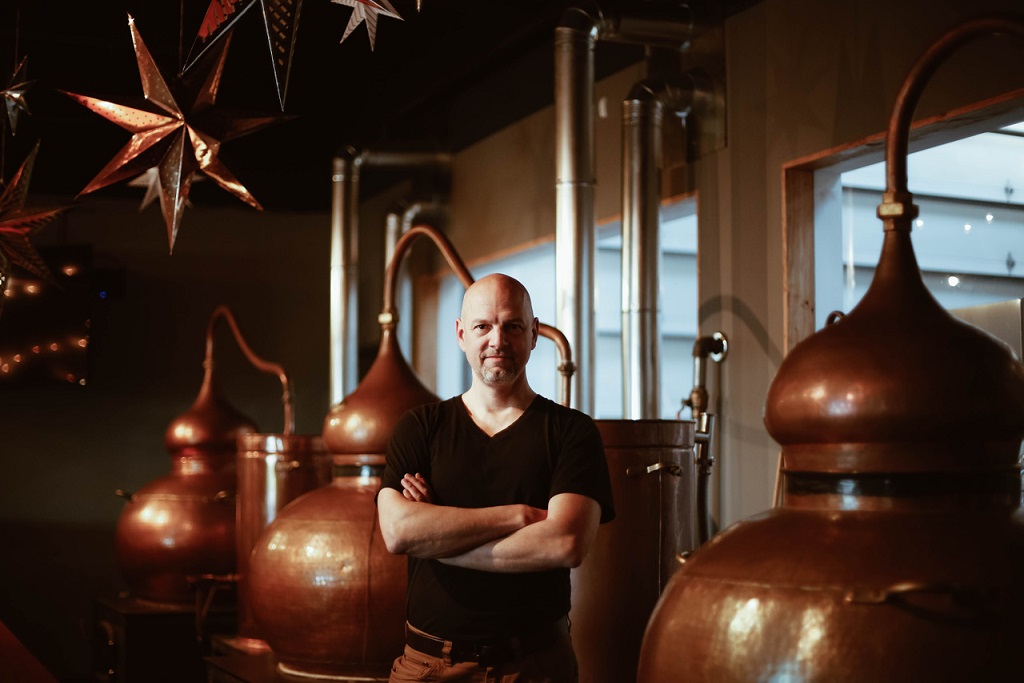 4. In today’s world people are tend to show only positive side. However, I strongly believe that it’s extremely important to talk about difficulties too. What kind of challenges you have faced since the very beginning?
4. In today’s world people are tend to show only positive side. However, I strongly believe that it’s extremely important to talk about difficulties too. What kind of challenges you have faced since the very beginning?
The spirits industry is far more difficult to break into than anyone may care to admit, and the number of skills needed to build a business in this space is beyond demanding, not to mention the financial risk. Many people are drawn to the creative side of the industry, but I’d say the business development, sales & marketing ends up being over 90% of the work. It’s also hard to discuss, but I believe all these challenges take their toll on the psychological health of us entrepreneurs, I have seen many struggling souls in the business and had my own share of dark days in the beginning.
5. Correct me if I’m wrong, but Bluewater’s products are 100% manufactured in the United States. In your opinion, why is it important? Do you think it is a rarity these days?
Externalities and impacts are something that I can’t shy away from, and within Bluewater we always have an honest conversation about our footprint. There’s been a long-brewing generational shift in how we increasingly demand more from the things we buy and the work we do ourselves. Bluewater is an aspirational company, a business that leads by example and rejects the status quo. We source American-made, bottles, corks & closures – and we pay a hefty premium compared to the ubiquitous Chinese-made packaging. By sourcing Organic agriculture we sometimes have to reach overseas for ingredients.
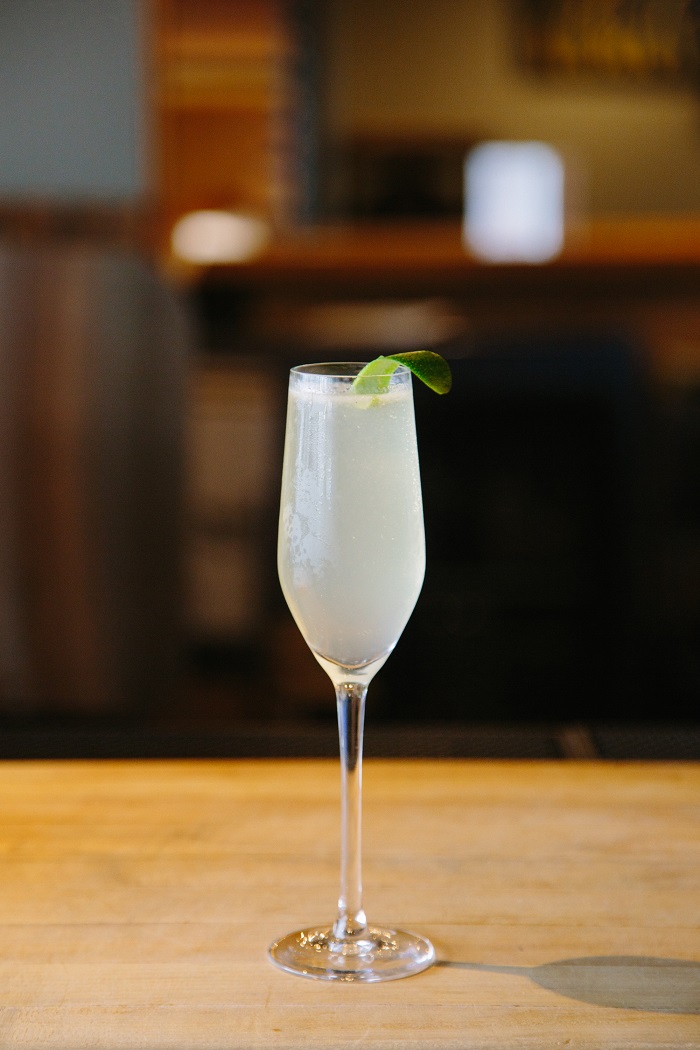 Early on, I realized I could prioritize hyper-local or hyper-sustainable. The two are often mutually exclusive since so much American agriculture is genetically modified or pesticide dependent. We chose hyper-sustainable, even if it means buying things like aromatics from the Mediterranean for example. Our model is definitely a rarity, but we’re always excited when other businesses join the effort.
Early on, I realized I could prioritize hyper-local or hyper-sustainable. The two are often mutually exclusive since so much American agriculture is genetically modified or pesticide dependent. We chose hyper-sustainable, even if it means buying things like aromatics from the Mediterranean for example. Our model is definitely a rarity, but we’re always excited when other businesses join the effort.
6. I have read about membership at 1% for the Planet. Can you tell us more about the program? What are the others ways Bluewater is contributing to ecology?
Bluewater was the first spirits-industry member of the 1% network, which was founded by Yvon Chouinard of Patagonia as a credible way for businesses to support conservation work. As a matter of integrity, 1% verifies that member businesses contribute at least 1% of gross sales towards environmental work, and the tribe has grown to over 1,200 businesses giving $175m to effective non-profits.
Beyond 1% for the Planet, our commitments to sourcing Organic agriculture directly supports non-commodity farmers and healthy land. Bluewater also contributes hugely to many local non-profit organizations in our PNW community. And we operate our distillery bistro with a commitment to local purveyors, a full composting program, no bar plastics, and as much re-use / re-cycle efforts that we can dream up. Almost every thing we do ends up pressuring our prices upward so we work hard to communicate our brand values to our customers.
7. What advice would you have given yourself before you started beverage business?
That’s a tough one, I would have offered serious warnings of the difficult & long path needed to reach profitability, similar as I say to aspiring distillers. Given the number of distilleries that have opened nationally, I would have suggested developing a business on the supply side or service side of the industry. But in the end, I have no regrets. It wasn’t easy, but I’m so proud of the Bluewater brand experience & everything we’ve achieved in the last ten years.
For more information visit Bluewater website.

